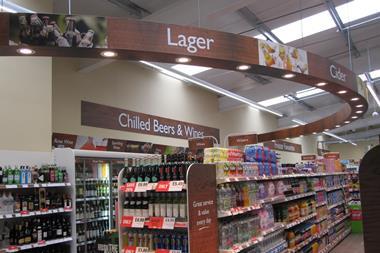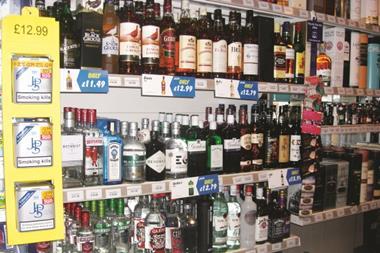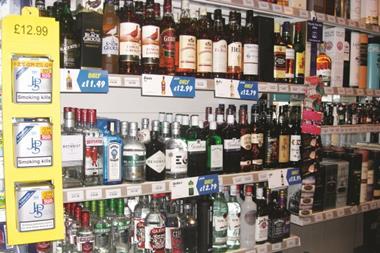Calls to set a minimum price for alcohol in Scotland have been heightened following the publication of new figures which show an increase in consumption in the past two years.
Scottish adults are drinking more alcohol per person than in 2013, according to figures released by NHS Health Scotland. Sales through supermarkets and off-licences increased by 5% between 2013 and 2015, offsetting the fall seen in on-trade sales.
Alcohol sales in Scotland were also 20% higher than in England and Wales in 2015.
The rise co-incides with a rise in the amount of alcohol sold at below 50p per unit, it added. The amount of beer sold below 50p per unit increased by 11% in the past two years, equivalent to over 30 million bottles.
Dr Mark Robinson, senior public health information manager at NHS Health Scotland said: ”Trends in the price of alcohol sold by supermarkets and off-licences correspond with trends in the volume of alcohol sold by these retailers. Between 2009 and 2013, the average price of alcohol increased and consumption decreased. Since 2013, average price has flattened and consumption has increased.
“Policies that reduce the availability of low priced, high-strength alcohol are the most effective for reducing alcohol-related harms and narrowing health inequalities.”
Scotland’s new public health minister Aileen Campbell also said the figures supported the case for minimum pricing.
But John Lee, head of policy and public affairs at the Scottish Grocer’s Federation, hit out at the calls. “It seems as though any movement in alcohol sales figures is used as a call for change, regardless of whether they go up or down!” he told Convenience Store.
“We are not convinced that there is as clear a link between price and consumption that the report suggests. We don’t need more legislation for the alcohol category, our priority and that of our members is to ensure that alcohol is being sold responsibly.”
Scotland passed the Alcohol Minimum Pricing Act in 2012, however it has yet to be implemented. The European Court of Justice said the policy could only be introduced on health grounds under EU law if it was more effective than using general taxation. The case has been returned to Scotland’s civil courts for a final ruling.


















No comments yet